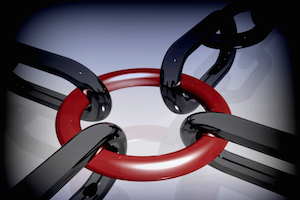Professional websites like LinkedIn can increase lawyers’ exposure and benefit their practices. With 187 million unique visitors each month, more than 68% of attorneys say they use LinkedIn to engage other professionals or potential clients. Even a widely used professional networking site such as LinkedIn presents a number of potential ethical conundrums for attorneys and law firms. The “Specialties” section as well as the “Skills and Endorsements” section of LinkedIn profiles can leave attorneys particularly vulnerable to ethical snags.
Attorneys listing “specialties” or “skills and endorsements” on LinkedIn has raised ethical quandaries for lawyers and law firms as it appears to conflict with state bar ethics rules governing attorney advertising. Although individual LinkedIn profiles now include a “Skills and Endorsements” section instead of a “Specialties” section since 2012, the “specialties” section remains a component of LinkedIn “Company Pages,” which is used by many law firms.
Isn’t “endorsing” attorneys for a skill basically the same thing as having a specialty? Unfortunately, this is still the subject of ongoing debate among legal professionals.
The ABA and state bar ethical rules discourage such flagrant use of the word “specialty,” instead instructing lawyers to use the term meticulously. Under ABA Rule of Professional Responsibility 7.4 and equivalent state ethics rules, attorneys are generally prohibited from claiming to be a “specialist” in the law.
ABA Rule 7.4(d) prohibits attorneys from stating or even implying that they are certified as a specialist in a particular field of law, unless:
(1) the lawyer has been certified as a specialist by an organization that has been approved by an appropriate state authority or that has been accredited by the American Bar Association; and
(2) the name of the certifying organization is clearly identified in the communication.
Many states bar associations extend this restriction to use of terms like “expert” or “expertise.” ABA Model Rule 7.1 prohibits attorney from making any false or misleading claims about his or her services. If a lawyer knowingly permits an endorsement to remain on his or her personal LinkedIn profile that is misleading that could pose a problem under ABA Model Rule 7.1, even if another user posted the endorsement.
Former chair of the Illinois State Bar Association Standing Committee on Professional Conduct, Michael Downey, has indicated that truthful endorsements are okay, even when an endorser does not know an attorney directly. One can deduce, then, that as long as you keep a watchful eye as new endorsements come in.
The Professional Guidance Committee of the Philadelphia Bar Association first distinguished between using the word “expert” and listing a practice area under the general category of “Skills and Expertise” in Opinion 2012-8, finding that an attorney may list practice areas under the LinkedIn heading “Skills and Expertise” because it is akin to listing practice areas on law firm websites. However, the Committee advised that listing yourself an “expert” in a particular practice could violation ABA Model Rules 7.1 and 7.4 by misleading a potential client to believe that the lawyer was a “specialist” in that area even if it i noted elsewhere on the LinkedIn profiles that you are neither certified nor an “expert.”
In South Carolina, these requirements are even more stringent. Similarly, South Carolina Ethics Opinion 12-03 concluded that lawyers may not participate in websites designed to allow non-lawyer users to post legal questions where the website describes the attorneys answering those questions as “experts.”
In April 2013, the Florida Bar imposed social media advertising guidelines on attorneys, containing prohibitions on statements that might imply “expertise” in an area of law to legal consumers by characterizing skills, experience, reputation or record unless they are objectively verifiable. A Florida Bar advisory advertising opinion written in response to one attorney’s inquiry later in 2013 declared that lawyers cannot list their practice areas under the “Skills & Expertise” section of their LinkedIn pages unless they are board certified in those particular areas pursuant to Florida Rule 4-7.14(a)(4).
In June 2013, the New York State Bar Association Committee on Professional Ethics similarly considered whether a lawyer or law firm could list areas of practice under the “Specialties” category,concluding that non-certified lawyers and law firms could not ethically list areas of practice under the “Specialties” heading on LinkedIn’s “Company Pages” unless the lawyer is appropriately certified as a specialist.
These opinions and ethical rules demonstrate the potential ethical ramifications that can arise from how they choose to present themselves in the digital sphere. Lawyers should keep that in mind and avoid blindly following a particular state bar determination when state bars vary substantially in their opinions on lawyers’ social media interactions. Nevertheless, these opinions are instructive and indicate that lawyers should carefully consider their jurisdiction’s past holdings regarding listing skills, expertise, and specialties, before before listing their areas of practice under those sections of their LinkedIn profiles or through other mediums.
To avoid the ethical dilemma of LinkedIn Specialties, Skills, and Endorsements, and all other online law firm activities, we provide workshops and regular training specifically focused on the legal industry to ensure the latest updates are adopted keeping your firm safe while optimizing online strategies. Reach out to us viveca@hessconnect.com to discuss further.

